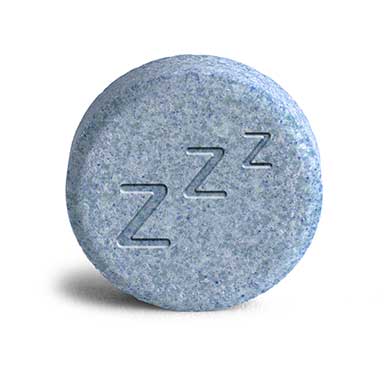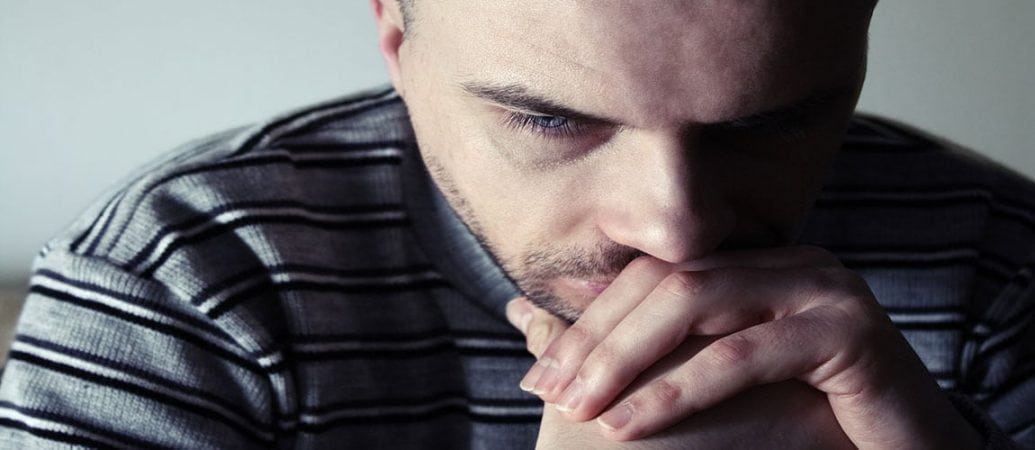The Dangers and Side Effects of Sleeping Pills
Do you occasionally have trouble falling asleep or staying asleep? If so, you are part of a silent and growing group. Up to one half of Americans suffer from a sleep concern like insomnia. While there are many sleeping pills on the market, many find that the side effects of these are not worth the temporary fix they offer. However, there is good news. If you have sleep problems and are concerned about the short- and long-term side effects of sleeping pills, there may be natural solutions.
Insomnia: A National Epidemic
Americans of every age occasionally have trouble falling asleep and staying asleep, and many suffer from insomnia and other sleep disorders. Modern life is full of stress and anxiety that can interfere with sleep. In addition, we live in a world very different from that of our ancestors. There is constant light and entertainment, making it difficult to maintain a healthy circadian rhythm. Even children have plenty of worries and distractions to keep them up at night. The result is that up to half of all people suffer from insomnia and even more have occasional difficulty falling asleep, both of which can have negative effects on your health.
There are many pharmaceutical solutions to help with insomnia and other sleep concerns, but these are highly imperfect. Many people are seeking a safe and long term fix for their sleeping woes.
Are They Worth It? Side Effects of Sleeping Pills
 There are many downsides to the medications available on the market to help people sleep. Sleeping pills can sedate you and make it difficult to wake up in the morning or in the case of an emergency. Accidental overdose is a very real and worrisome possibility as well. This is especially true for people with respiratory diseases such as asthma. Sleeping pills can be addictive or habit-forming as well. People who use them may find that they work at first, but that the effects become smaller and smaller. People who try them often find themselves taking increasing amounts of sleep medications to get the same or even smaller effects.
There are many downsides to the medications available on the market to help people sleep. Sleeping pills can sedate you and make it difficult to wake up in the morning or in the case of an emergency. Accidental overdose is a very real and worrisome possibility as well. This is especially true for people with respiratory diseases such as asthma. Sleeping pills can be addictive or habit-forming as well. People who use them may find that they work at first, but that the effects become smaller and smaller. People who try them often find themselves taking increasing amounts of sleep medications to get the same or even smaller effects.
Because there are so many side effects of sleeping pills, many people try to use them only as a last resort. The FDA and other regulatory agencies actually recommend avoiding them and have made the guidelines for prescribing these medications stricter than ever before due to the dangers. Unfortunately this can mean living with sleepless nights. Is there a natural answer to occasional difficulty falling asleep and other sleep concerns?
Melatonin: A Natural Answer
Many people have been able to achieve a healthier sleep cycle using melatonin. In some cases, melatonin can be more effective and have fewer side effects than pharmaceutical sleeping pills. This is due to the fact that it is a completely natural hormone that is already made by your brain. When your body winds down at night, melatonin is released by the pineal gland in your brain to help you fall asleep. Many people have difficulty sleeping due to a deficiency of this important hormone.
Because it is a natural hormone, melatonin has very few side effects. The most common one is sleepiness, which is the very reason so many people take it. Overdoses of melatonin are so rare that they are practically unheard of and dependence is extremely rare because it is not addictive.
Getting the Sleep You Need
In addition to supplementing with melatonin, there are several ways that people with insomnia can get the sleep that they need. Consider making a few lifestyle changes proven to help with insomnia such as these:
1. Save the bed for sleep and romance.
People who read, study, pay bills and perform other tasks in bed are less likely to associate it with sleep and thus may have a hard time settling in for the night.
2. Do not go to bed until you are tired.
Lying awake is stressful and may actually make you stay up even longer than waiting until you are ready for sleep.
3. Meditate in the evening.
Meditation calms you down, brings down the blood pressure and quiets your mind. This is especially important for people who have trouble sleeping due to racing thoughts.
4. Go to bed and wake up at the same time.
This includes weekends. If your body gets into a set sleep-wake cycle, it will be likely to keep it. Sleeping in on weekends actually disrupts your circadian rhythm.
5. Turn down the lights an hour before bed.
This includes your phone and other devices. The blue light from these has been statistically proven to contribute to insomnia and keep your brain from releasing the melatonin that you need for good rest.
6. Consider old wives' remedies.
If chamomile and hot milk helped your grandmother to sleep, they just might help you as well. These old time remedies are often relaxing and nostalgic, helping you to settle in.
Many people do not need sleeping pills, but rather a relaxing sleep schedule and a few natural solutions. These natural remedies are healthy lifestyle choices that will get you to sleep without the many side effects of sleeping pills.




